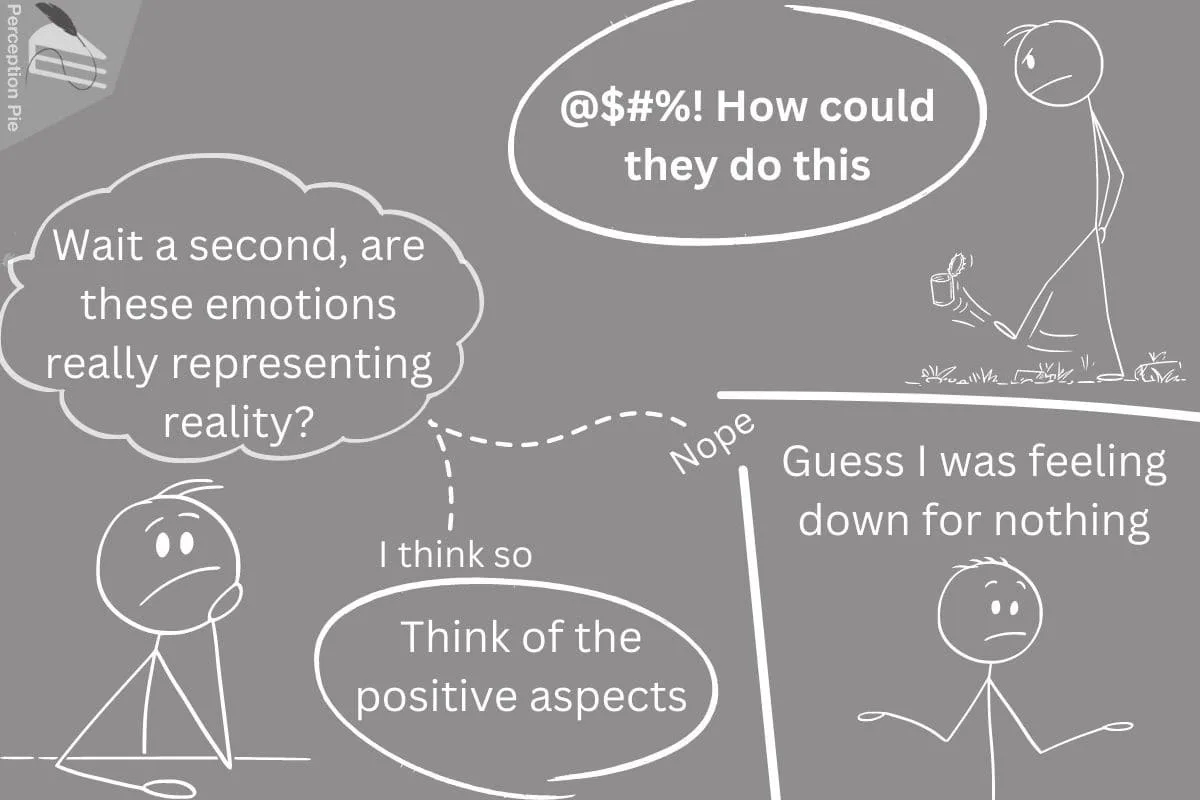
Life is a journey where it’s only natural that there’s challenges, but how we deal with them matters a lot and affects our mental well-being.
As psychologist Marine once said, “Stress is not what happens to us. It’s our response to what happens. And response is something we can choose.”
For exactly that, here’s 3 ways psychology can help us respond to our daily life challenges:
Uses of Psychology in daily life
1. Managing Stress
Stress can be of many types but the emotional (psychological) one that makes you go “I can’t do this” during challenges and pressure is the worst.
If anything, this kind of stress is a leading cause of illness from depression to heart diseases according to this study. Doesn’t sound good, how can psychology help?
One way to manage stress is by understanding our emotions and how they contribute to our stress levels. This can involve identifying triggers (what caused it) and learning coping strategies to deal with them.
Copying strategies include
- Deep breathing exercises which are basically slow and deep breaths.
- Mindfulness techniques, ie. meditation techniques focused on feeling your surroundings.
- Reframing negative thoughts to positive aspects of the situation, also called cognitive reframing.
I can especially vouch for the 3rd one, it’s probably the most powerful of them all. Whenever I’m having a bad time, I try to apply it like this:

What these strategies do is tell send signals to our brain to relax which allows us tackle the situation better.
2. Improve Connections With Empathy
Although connections are a two-way street, we can at least secure our end by showing sincerity. And best way to show sincerity? Cultivate empathy.
We can connect on a deeper level just by putting ourselves in their shoes and feel what they are going through. Afterwards, even if you don’t get the best response, at the very least it gets understandable.
For an example, just imagine that if a stranger were to approach you, wouldn’t the first thing in your mind be the purpose of it? Until you get more information, isn’t it natural that you up your defences?
Not only that, but trying to understand others emotions also helps in understanding our own so it’s a win-win. But how to actually practice empathy? Active listening and being non-judgemental.
Active Listening
In a world where polarization is on the rise, active listening might be hard to do, but it’s necessary for the sake of empathy. In essence, it’s just hearing and trying to understand the other person with minimum interruptions.
I know it’s hard to stay quiet when we hear some conflicting views, but abrupt interruptions with the ‘WTF are you saying” face puts the other person on defense and doesn’t help in understanding them.
Here’s some tips to practice active listening:
- Show that you’re listening – Use nonverbal cues such as nodding, smiling, and maintaining an open body posture to convey engagement.
- Pay attention – Max attention and minimum distractions. Make eye contact, and avoid interrupting or finishing their sentences.
- Provide feedback – Reflect on what they said by summarizing or paraphrasing their main points to show understanding of their point.
- Ask questions – Clarify any confusion by asking open-ended questions to encourage them to share more.
- Avoid imposing our opinions – Resist the urge to impose your opinion and instead focus on understanding their perspective.
At the end, you’ll not only be practicing empathy this way but also improve your communication overall!
Being Non-Judgmental
Despite trying not to, we might catch ourselves sub-consciously judging anyways and it’s normal too, but:
It’s also in our ability to suspend our initial judgments for a space of understanding and connection. And self-awareness helps immensly in doing this.
Self-awareness isn’t a destination but a non-ending journey where you try to become aware of your own bias, beliefs and experiences.
As Thales once said, “The most difficult thing in life is to know yourself” and I can 100% relate with this. But don’t worry, it’s a journey and you’ll do just fine as long you start it.
To recap, we can connect to people on a deeper level with empathy which can be practiced from active listening and trying to be non-judgemental.
3. Mindful Decision Making
We all we make decisions, some easy if there’s precedents while others no so if it’s a new path. If decisions seem hard don’t we resort to taking the easy route or listening to the ‘gut feeling’?
It works out most of the time but embracing ’emotional intelligence’ and self-awareness can help us make more informed decisions.
How well we understand and manage our emotions relates to emotional intelligence, this also includes effects of others emotions on us.
You wouldn’t want to make a life-changing decision based on someone’s whims if you yourself aren’t OK with it right? That’s where the above comes into play and guides us better.
It’s simply unreasonable and unwise to follow such decisions and stand on them as if they were your own, so rather than regretting later on, isn’t temporarily breaking some hearts a better route?
Two ways to make mindful decisions is considering both the positives and negatives of the decision and being aware of your own biases.
Considering Pros and Cons
From a simple buying decision to a life-changing one, it’s always worth it to consider both sides of the coin.
I know our mind sometimes tries convincing us to just “do it” and not go into details and it’s sometimes fine too, but it doesn’t hurt to give a second look for decisions having an impact.
By doing so, we can assess the consequences better, make more informed choices AND stand on the decision confidently without regrets.
Avoiding Cognitive Biases
Our mind is prone to various cognitive biases that can affect our decision-making process but, by being aware of them we can reduce their impact and be more mindful in decision-making.
Here’s a few cognitive biases you’ve probably experienced:
Confirmation Bias: Our tendency to favor information that confirms our existing beliefs while disregarding contradicting evidence.
Our mind itself supports this, so it’s fair to say that we all have a degree of confirmation bias and it’s totally fine as long as it’s not to the extreme.
Sunk Cost Fallacy: The inclination to continue investing in a decision based on the amount of resources (time, money, energy) we have already committed, despite the potentially better alternatives.
If you have ever invested, gambled or perhaps played a gacha game then you may have experienced this in real time.
Anchoring Bias: Relying heavily on the first piece of information we encounter when making decisions.
Ever heard of the famous line “First impression is the last impression”, it’s basically this.
Only time can tell if the decisions taken were the best but I can promise you that even if they don’t turn out to be best, you won’t feel regrets or negative feelings.
Why? Because at the time you made the best informed decision the available information back then. You’ll put your chin up and live on!
Keypoints
Although there’s many uses of psychology, here’s some of them:
- Managing Stress
- Improve Connections With Empathy
- Mindful Decision Making
I’ll be updating this article with more as time goes on, if you liked reading this one then you’ll enjoy checking up why psychology matters.
